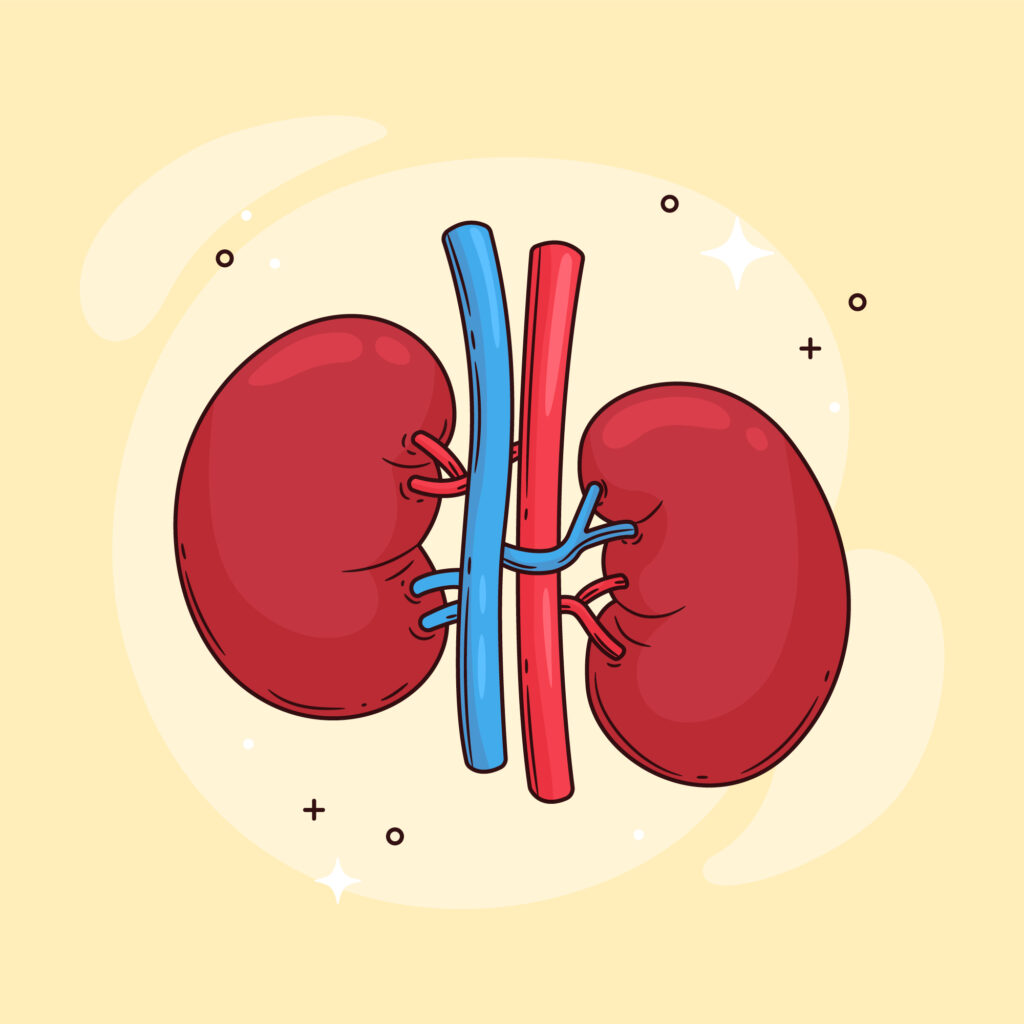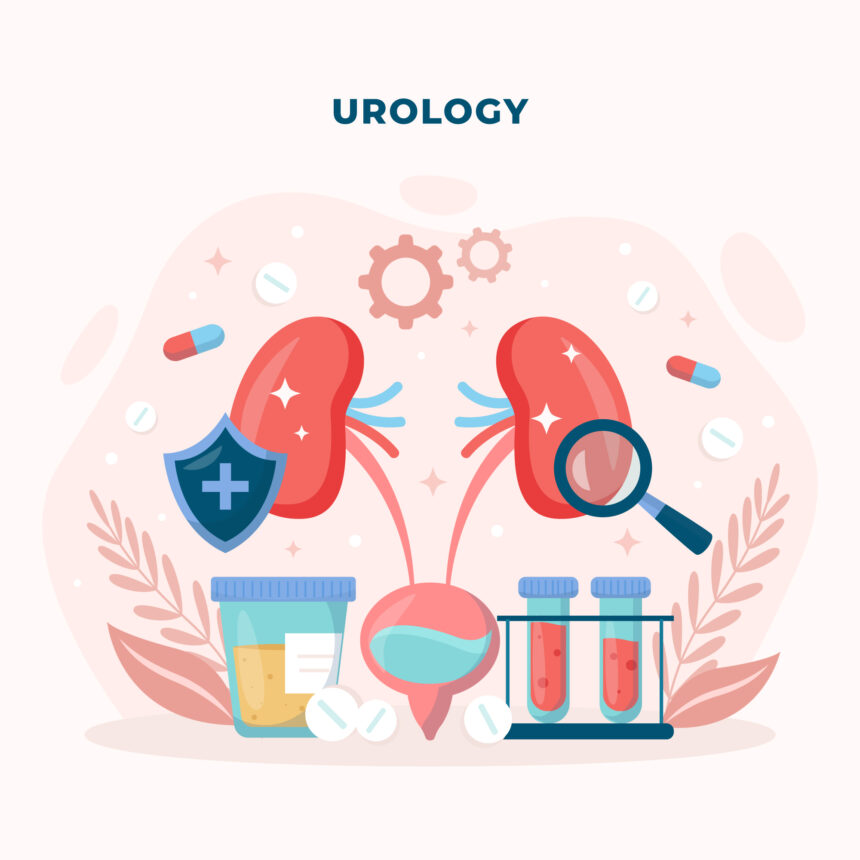When it comes to overall well-being, kidney health is often an overlooked aspect of routine check-ups. However, kidneys perform a wide range of life-sustaining functions, including waste elimination, fluid balance, and blood pressure regulation.
In people diagnosed with Stage 2 Chronic Kidney Disease (CKD), these organs are still working relatively well, but subtle damage has already begun. This early stage may not come with obvious symptoms, which makes regular monitoring even more essential. In this post, we’ll explore the significance of kidney function monitoring in Stage 2 CKD and why acting early can change the course of your health.
Understanding the Role of the Kidneys in Your Body
The kidneys are two bean-shaped organs located on either side of your spine, just below the rib cage. They filter your blood around the clock, removing waste and excess fluids while also regulating minerals and electrolytes. These vital organs produce hormones that manage blood pressure, control red blood cell production, and even help keep your bones strong.
A healthy kidney filters about 50 gallons of blood every single day, removing around two quarts of waste. Any damage to these organs can impair their efficiency, eventually leading to a build-up of toxins in the body. The body’s balance gets disrupted, and other systems including the cardiovascular and skeletal systems can begin to deteriorate.
Kidney health is therefore essential not just for filtering waste, but also for keeping numerous other processes running smoothly.
What Is Stage 2 Chronic Kidney Disease?
Chronic Kidney Disease is divided into five stages based on the glomerular filtration rate (GFR), which measures how well your kidneys are filtering blood. In Stage 2 CKD, the GFR falls between 60 and 89 mL/min/1.73 m². This means that while your kidneys are still doing a fairly good job, there is evidence of mild kidney damage.
This damage may be picked up through blood tests, urine samples, or imaging studies. In some cases, it’s only discovered when a routine test shows abnormal protein levels in urine, or when blood pressure is found to be unusually high. At this stage, the damage is often not accompanied by major symptoms, making it easy for people to ignore.
Why Monitoring Kidney Function in Stage 2 CKD Matters
The importance of keeping tabs on kidney function in Stage 2 CKD cannot be overstated. At this early phase, the damage is not yet irreversible. With the right lifestyle changes and medical interventions, progression to more severe stages of CKD can be delayed or even prevented altogether.
Monitoring helps doctors determine how quickly the disease is progressing. This knowledge can inform decisions about diet, medications, and lifestyle adjustments. It also opens the door to early treatments that can protect the kidneys from further harm.
Additionally, regular monitoring helps uncover complications early on, such as high blood pressure or anemia, that are common in CKD patients. Managing these issues sooner rather than later can improve overall health outcomes.
The Silent Nature of Kidney Damage
One of the biggest challenges with kidney disease is that it often develops silently. By the time symptoms like swelling, fatigue, or shortness of breath appear, significant damage may have already occurred. This is particularly true for Stage 2 CKD, where symptoms are minimal or completely absent.
People may continue to feel fine and dismiss any potential warning signs. As a result, they might not seek medical attention until the disease has progressed into Stage 3 or beyond. Routine blood and urine tests are essential to catch this condition before it worsens. These tests are relatively simple but play a crucial role in assessing kidney function and spotting early problems.
Early detection is key. The earlier the condition is identified, the more time you and your healthcare provider have to create a targeted, effective treatment plan.
Risk Factors That Make Monitoring Even More Important

Certain individuals are more prone to developing kidney problems and should be especially vigilant about routine monitoring. If you fall into any of the following categories, staying on top of kidney function is not just recommended—it’s imperative:
- You have high blood pressure.
- You are living with diabetes.
- You have a family history of kidney disease.
- You are over the age of 60.
- You are overweight or obese.
- You smoke or consume alcohol regularly.
These risk factors place added stress on the kidneys and can accelerate the decline in kidney function. If you have one or more of these risk factors and have been diagnosed with Stage 2 CKD, regular follow-up appointments should be a top priority.
Key Medical Tests for Monitoring Kidney Health
If you are managing Stage 2 CKD, your doctor will likely order a series of tests to monitor your kidney function on a regular basis. The most common include:
Glomerular Filtration Rate (GFR) – This test evaluates how well your kidneys are filtering blood. A declining GFR indicates worsening kidney function.
Serum Creatinine – This blood test measures the level of creatinine, a waste product from muscle metabolism. Elevated levels can be a sign of impaired kidney function.
Urinalysis – A urine test can detect protein, blood, or other abnormal substances that indicate kidney damage.
Blood Urea Nitrogen (BUN) – This test assesses how much urea nitrogen is present in the blood. High levels may point to kidney problems.
Albumin-to-Creatinine Ratio (ACR) – This test measures how much protein (albumin) is in your urine. Even small amounts of protein can indicate early kidney damage.
Keeping track of these numbers over time allows both patients and physicians to get a clearer picture of the disease’s progression and make informed decisions about treatment strategies.
The Role of Lifestyle in Slowing Disease Progression
The silver lining in a Stage 2 CKD diagnosis is that lifestyle changes can have a tremendous impact. While some factors—like genetics—are out of your control, many other contributing factors can be addressed through thoughtful habits.
One of the most impactful changes involves dietary modifications. People with Stage 2 CKD are usually advised to reduce their intake of sodium, processed foods, and excess protein. A diet that emphasizes fresh fruits, vegetables, and whole grains can ease the burden on the kidneys.
Physical activity also plays a role. Regular exercise helps manage weight, reduce blood pressure, and improve insulin sensitivity. These benefits indirectly protect kidney health.
Smoking cessation and alcohol moderation are other key lifestyle changes that can make a difference. Tobacco and excessive alcohol consumption increase inflammation and put extra strain on already vulnerable kidneys.
Medication Management for Stage 2 CKD
At Stage 2, medications may be introduced to address underlying conditions like high blood pressure, diabetes, or high cholesterol. These drugs are not specifically for CKD but help create an environment in the body that’s less damaging to the kidneys.
For example, ACE inhibitors or ARBs may be prescribed to control blood pressure and reduce protein loss in the urine. Statins may be used to manage cholesterol levels, and medications to regulate blood sugar can prevent further kidney complications in diabetics.
It’s crucial that medications are taken exactly as prescribed. Skipping doses or taking over-the-counter drugs without medical guidance can worsen kidney function. Some pain relievers, especially NSAIDs, are known to be harmful to the kidneys and should be avoided unless advised by a doctor.
Emotional and Mental Health in Early CKD
Receiving a CKD diagnosis can be emotionally overwhelming. Even in the early stages, the thought of a chronic illness can lead to stress, anxiety, or even depression. It’s important to acknowledge and address the emotional aspect of kidney disease.
Support groups, mental health counseling, and open conversations with healthcare providers can make a significant difference. Patients who feel empowered and well-informed about their condition are often more motivated to stick to treatment plans and make healthier choices.
Mental well-being directly impacts physical health. Anxiety and stress can elevate blood pressure and affect sleep patterns, both of which are detrimental to kidney health. Maintaining a balanced emotional state is an essential but often overlooked aspect of kidney disease management.
The Financial Benefits of Early Monitoring
From a practical perspective, early monitoring and intervention can also reduce long-term healthcare costs. Treating advanced kidney disease or kidney failure is extremely expensive, especially when dialysis or transplant becomes necessary. These interventions are not only costly but also life-altering.
By contrast, routine blood tests, urine screenings, and office visits are far less expensive and can help prevent the need for more intensive treatments. Health insurance plans often cover preventive screenings, making them accessible and affordable for most people.
When you consider the financial and physical toll of untreated kidney disease, the importance of proactive monitoring becomes even clearer.
What Happens If You Don’t Monitor?
Neglecting kidney function in Stage 2 CKD can have severe consequences. Without intervention, the disease can silently progress into Stage 3 or 4, where kidney function drops more significantly. At this point, symptoms become more pronounced—fatigue, swelling, difficulty concentrating—and complications like anemia, bone disease, or cardiovascular problems become more likely.
Eventually, end-stage kidney failure can occur, necessitating dialysis or a kidney transplant. These are life-altering procedures that come with a host of physical, emotional, and financial challenges. But the worst part is that in many cases, this downward spiral could have been slowed or even avoided with timely monitoring and action.
Working with Your Healthcare Team
Managing Stage 2 CKD is a collaborative effort. Doctors, nurses, dietitians, and sometimes nephrologists all work together to help monitor and manage your kidney health. Patients who are engaged, ask questions, and stay informed about their lab results tend to have better outcomes.
Routine appointments allow healthcare providers to track changes and adjust treatment plans as needed. Don’t hesitate to ask questions or express concerns about your medications, lifestyle changes, or symptoms you may be experiencing.
Your active participation in your health care can make a measurable difference in how well you manage kidney disease.
Building a Long-Term Kidney Health Plan
Treating Stage 2 CKD isn’t about short-term fixes—it’s about long-term planning. Setting health goals, understanding your lab values, and making consistent lifestyle choices are all part of building a sustainable approach to wellness.
Regularly update your health goals with your care team. Track progress over time. If one approach doesn’t yield results, work with your doctor to try another. Flexibility and patience are crucial, but persistence will yield benefits.
It’s also a good idea to keep a personal health journal. Write down your blood pressure readings, dietary habits, medication schedule, and how you’re feeling physically and emotionally. This helps identify patterns and gives your care team better insights into your day-to-day life.
Final Thoughts: Stay Proactive, Stay Healthy
Stage 2 Chronic Kidney Disease is not a life sentence—it’s a wake-up call. It presents a crucial opportunity to turn things around and prevent more serious health consequences down the road. Your kidneys are resilient organs, and with proper care and monitoring, their decline can often be slowed significantly.
Regular monitoring isn’t just a recommendation—it’s a powerful tool that can extend both the quality and length of your life. Whether it’s through routine lab work, lifestyle adjustments, or medication management, every step you take today contributes to a healthier tomorrow.
Don’t wait until symptoms appear. By the time they do, significant damage may already be done. Stay proactive. Ask your doctor about your kidney numbers. Make informed decisions. And most importantly, take your health into your own hands—because when it comes to kidney health, early action truly saves lives.

